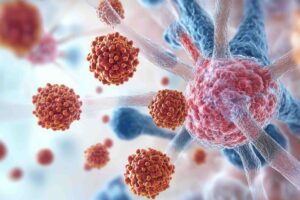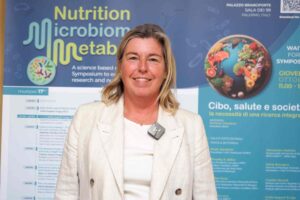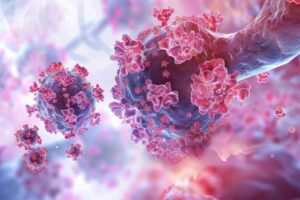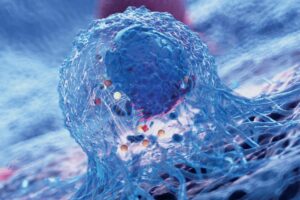Held in the vibrant city of Amsterdam at the iconic Eye Filmmuseum, the 2024 International Yakult Symposium brought together world-class experts to discuss the latest advances in microbiome science.
This year’s theme, “The Gut, Conductor of Our Health”, creatively aligned the complexities of gut health with the role of an orchestra conductor, illustrating the way the microbiome influences various aspects of our wellbeing.
The event opened with a symbolic video featuring a young orchestra director, reminding the audience that much like music, the harmony of our gut microbiome is essential to our health.
Diet and microbiome: a delicate balance
The symposium’s keynote speaker, Prof. Konstantinos Gerasimidis from the University of Glasgow, introduced the fundamental role diet plays in shaping the gut microbiome.
He outlined how industrialization and the rise of the Western diet have shifted microbial composition, contributing to chronic diseases such as cardiovascular and mental health disorders. However, Gerasimidis emphasized that dietary interventions, especially plant-based foods, can enhance beneficial microbiota and their production of short-chain fatty acids (SCFAs), which are vital for maintaining gut and systemic health.
The infant gut: building a healthy microbiome
The development of the infant gut microbiome was the focus of the second session, with Prof. Flavia Indrio highlighting the complex interplay between breast milk and infant gut health.
Breast milk, she explained, is rich in microbes like Lactobacillus and Bifidobacterium species, which aid in establishing a healthy gut microbiota.
Following her, Prof. Christine Edwards expanded on how early life factors, including delivery mode, weaning practices, and antibiotics, influence microbiota establishment in the first year of life, laying the foundation for lifelong health.
Women’s health: hormones and microbiota
In a session dedicated to women’s health, Prof. Max Nieuwdorp discussed how hormonal fluctuations interact with the gut microbiota, influencing fertility and reproductive health. The gut microbiome, he explained, not only helps regulate hormone levels but is also implicated in conditions like endometriosis.
Further exploring this theme, Prof. Sarah Lebeer presented findings from the groundbreaking Isala study, which leveraged citizen science to advance understanding of the vaginal microbiome and its role in women’s health.
The gut-brain axis: mental health connections
One of the most anticipated sessions explored the gut-brain axis, with Assoc. Prof. Alejandro Arias-Vasquez detailing how gut microbes influence mental health through the production of neuroactive compounds like serotonin and dopamine.
This bidirectional communication, he noted, plays a pivotal role in conditions such as ADHD, depression, and autism. The potential of dietary interventions and probiotics to improve mental health outcomes was a central theme, reflecting the growing interest in “nutritional psychiatry”.
Fermented foods and microbiome health
On the second day, Prof. Paul Cotter delivered an enlightening keynote on the health benefits of fermented foods.
He discussed how the fermentation process introduces beneficial microbes and bioactive compounds that enhance gut health, providing a strong case for including more fermented foods in the diet.
Cotter’s presentation also highlighted ongoing research into the untapped potential of these foods in promoting metabolic and immune health.
Microbiome and metabolism: a symbiotic relationship
The closing session focused on the gut’s role in metabolism, with Prof. Marie-Christine Simon explaining how gut microbes regulate glucose and lipid metabolism through the production of SCFAs and other metabolites.
Dysbiosis, she warned, is closely linked to metabolic disorders like obesity and diabetes. Prof. Jingyuan Fu further elaborated on the intricate host-microbiome co-metabolism, highlighting how personalized interventions targeting the microbiome may offer new ways to prevent or treat these conditions.
Conclusion: a symphony of insights
The 2024 Yakult Symposium elegantly framed the gut microbiome as the conductor of human health.
From early infancy to advanced age, the microbiome orchestrates critical processes that affect everything from metabolism to mental health.
With growing evidence supporting the role of diet, probiotics, and personalized microbiome interventions, the field continues to evolve, offering new hope for preventing and managing a wide array of conditions.
As the symposium concluded, it was clear that this dynamic research area will remain at the forefront of scientific inquiry, shaping the future of healthcare.














